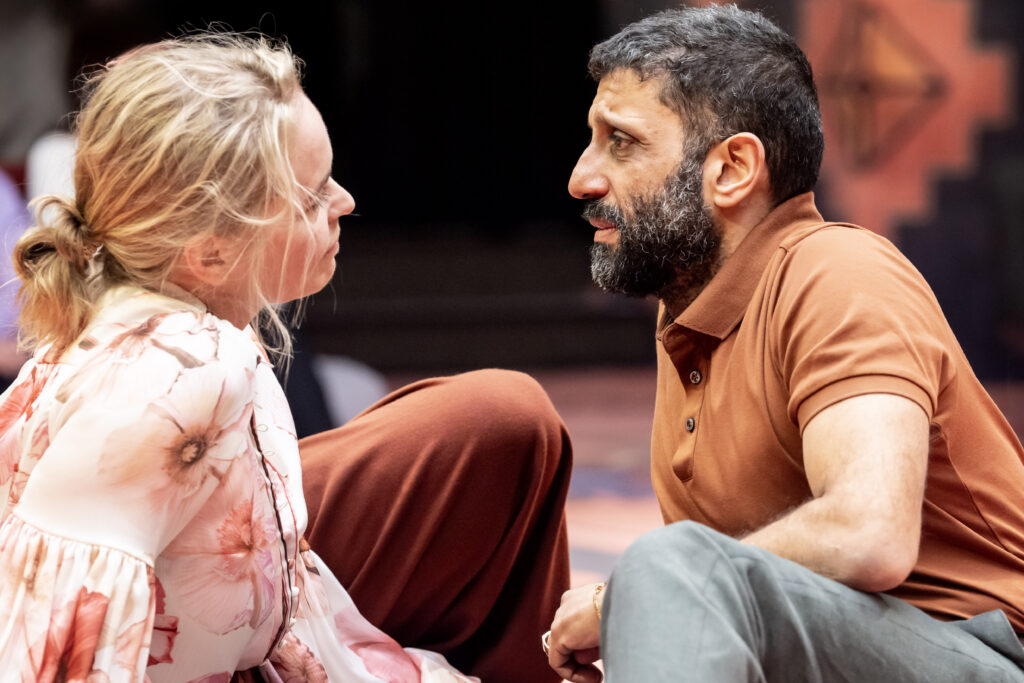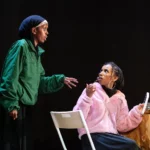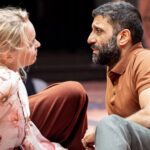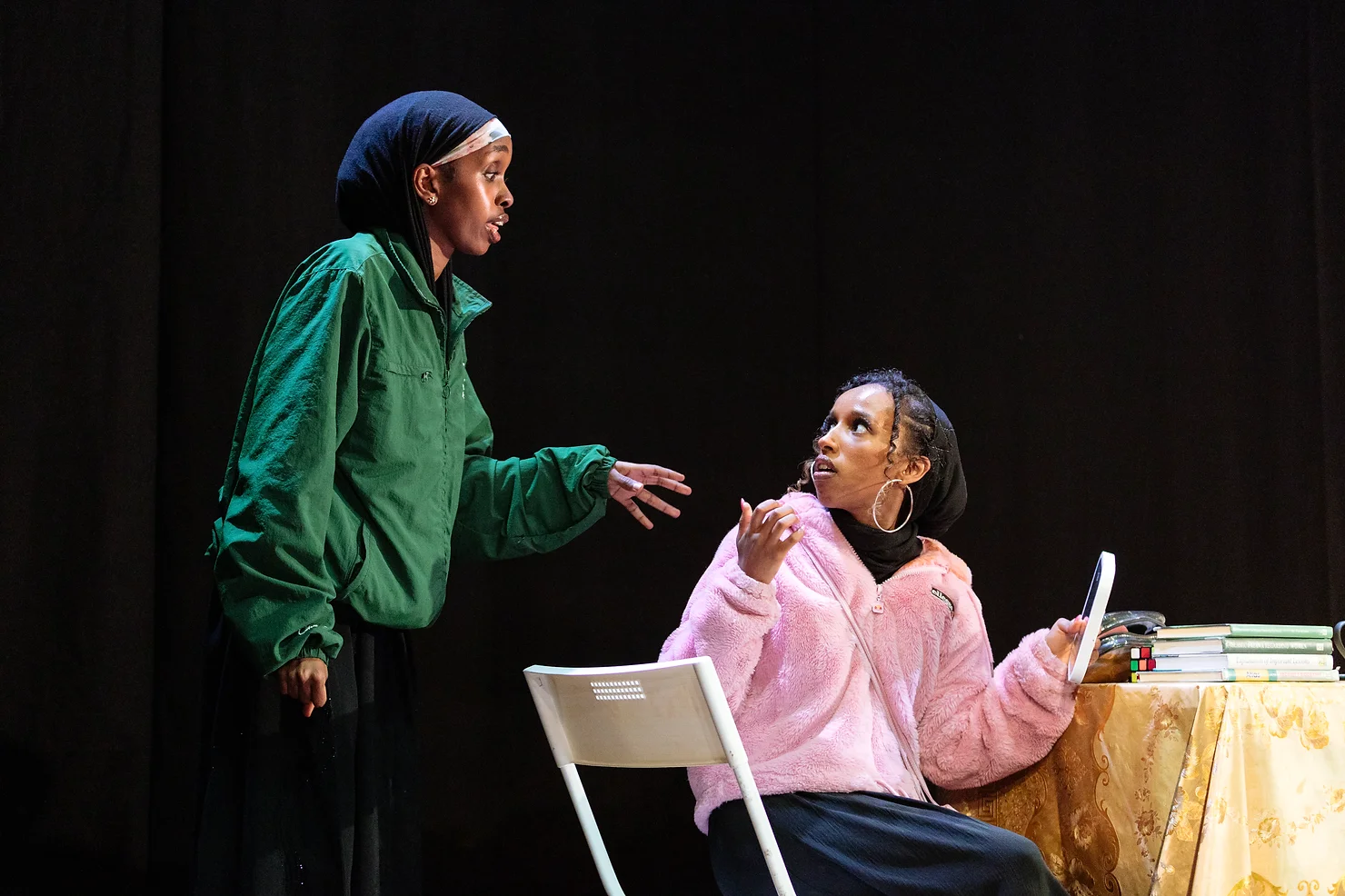
Benedict Andrews blows the bloody doors off the family estate home at the centre of The Cherry Orchard in this near-immersive production of Chekhov’s classic play. The house lights are up, the actors sit amongst us and some audience members stand in for props on Magda Willi’s minimalist stage, the stage and walls covered in 70s style carpeting and the cast decked out in clothes with nods to every fashion trend from the 1900s to the present; from knitted peasant cardigans to prime coloured, 90s-styled baggy pants.
The house and land, including the titular orchard, are up for sale to pay for the debts of the free-spending Liubov (Nina Hoss), who has returned from her life in Paris ahead of the auction date with her daughter Anya (Sadie Soverall) and her valet Yasha (Nathan Armarkwei Laryea) in tow.
The party that meets them includes Liubov’s rambling, Chupa-Chups-sucking brother Leonid (Michael Gould) and Yermolai (Adeel Akhtar), the grandson of a serf who had been attached to the estate, who has a practical solution to the family’s problem – avoid the auction and save their home by dividing up and selling the cherry orchard.

Akhtar is a devastating force in the role. He is played as an East End-styled, Del Boy come good – but his explosive vitriol in his moment of triumph over the family who owned his ancestors, and over his own family, is terrifying. Hoss is deeply affecting as the vulnerable Liubov who moves from uncontainable joy to heart-wrenching grief in an instant. Meanwhile, as Firs, June Watson steals every scene she wanders into with her confused mutterings of ‘fuckwits’ and ‘shitbag.’
Andrews, who adapts and directs, approaches the dilemma of whether to play to the comedy or the tragedy but heightens both elements. The squeak in Seymon’s shoe coming from a literal toy squeaker in their soles. It’s a brilliant, and tragic, clowning performance by Éanna Hardwicke that encapsulates Andrews’ approach – let the comedy feed the tragedy.
It’s the second half where it really explodes into life. The three-piece band moves from the off-stage fringes to centre stage as the house parties ahead of their proposed salvation, courtesy of a generous monied Aunt. Andrews carefully builds the tension, the band’s freestyle jazz (composed by May Kershaw) becoming increasingly dissonant and disjointed, the tapping of a drumstick on the edge of a snare drum like a ticking clock as Liubov becomes increasingly concerned for news of the sale as the seconds and hours pass.

The staging is no gimmick; though played in the round, Andrews puts us at the heart of the party with this pandemonium happening in and around us. The format lends itself to the chaos and confusion of the party which forms the majority of the second half as characters come and go from their stalls seats, or pace back and forth in the area behind the audience.
120 years on from its first performance in Moscow, themes still resonate. As Firs bemoans how everyone used to be happy in the old days, she could be talking about the emancipation of the serfs or the collapse of the USSR. Opening as voters go to the polls across England, we see the student Pyotr (Daniel Monks) rails against the increasing divide between the 1% and the general population, and questions what austerity has delivered. What a timely, necessary and radical piece of theatre.
The Cherry Orchard is at Donmar Warehouse until 22 June 2024















